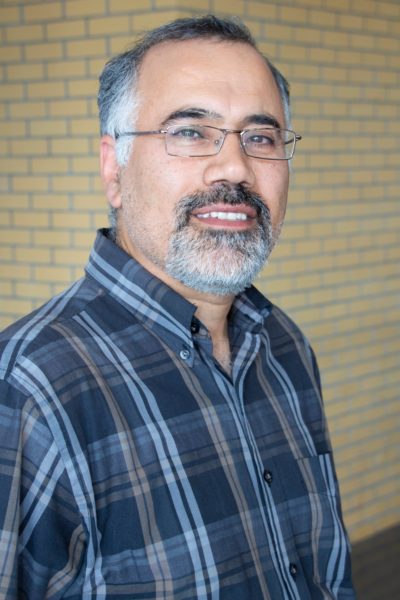TORONTO, Jan. 14, 2021 – Testing can significantly control outbreaks of COVID-19 in Ontario schools, especially when combined with other measures, such as mask wearing, say York University researchers who led the study.
The researchers found that testing is effective in controlling the SARS-CoV-2 infections in schools as long as it’s done frequently, and the tests are processed quickly. It’s also important to ensure infected students self-isolate at home.
 “Testing won’t eliminate the risk of infection, but it can be a powerful tool for controlling outbreaks,” says Faculty of Liberal Arts & Professional Studies Associate Professor Ali Asgary, associate director of the Advanced Disaster, Emergency and Rapid Response Simulation (ADERSIM). Asgary led the study in collaboration with Professors Shengyuan Michael Chen and Jianhong Wu of the Faculty of Science’s Laboratory for Applied and Industrial Mathematics (LIAM) and Professor Monica Gabriela Cojocaru of the University of Guelph's Department of Mathematics and Statistics.
“Testing won’t eliminate the risk of infection, but it can be a powerful tool for controlling outbreaks,” says Faculty of Liberal Arts & Professional Studies Associate Professor Ali Asgary, associate director of the Advanced Disaster, Emergency and Rapid Response Simulation (ADERSIM). Asgary led the study in collaboration with Professors Shengyuan Michael Chen and Jianhong Wu of the Faculty of Science’s Laboratory for Applied and Industrial Mathematics (LIAM) and Professor Monica Gabriela Cojocaru of the University of Guelph's Department of Mathematics and Statistics.
“As the reopening of schools may create conditions for further spread of the virus and increase case numbers in schools, as well as in the community, testing could help prevent large outbreaks while allowing students to learn onsite at schools,” says Asgary.
A co-author on the paper, Cojocaru says “We know that school closures hurt everyone – children, parents, teachers, the economy. We need to use testing as a tool in this fight, but we need to have a strategy for that testing. That’s what this study aimed to propose.”
The researchers at York also developed an agent-based model and simulation tool, a school testing application, that can analyze the outcomes and effectiveness of different testing strategies and scenarios in schools. It can be used to analyze various numbers of classrooms and differing class sizes.
“It could be an important additional preventative tool to ensure early identification of cases among students,” says Wu. “The school testing app allows users to define disease-related parameters and their school settings, as well as predict and assess the impacts of different testing strategies.”
 The goal is to test a random number of students once a day from every class. Any students who test positive would go into self-isolation at home. The tool includes options to test the entire classroom or to have all students in a class, where someone tested positive, to self-isolate. The study’s base model looked at a school with 20 classes and 25 students in each class for 60 days.
The goal is to test a random number of students once a day from every class. Any students who test positive would go into self-isolation at home. The tool includes options to test the entire classroom or to have all students in a class, where someone tested positive, to self-isolate. The study’s base model looked at a school with 20 classes and 25 students in each class for 60 days.
Whether to test or not in schools has become an important policy and planning issue for school reopening both following the summer and the winter holiday break. Simulation modelling and artificial intelligence can help with exploring and examining the impacts of different testing scenarios.
The paper, Simulating Preventative Testing of SARS-CoV-2 in Schools: Policy Implications, was published today in the journal, BMC Public Health.
School testing simulation: https://cloud.anylogic.com/model/a7c4411e-064e-4283-a93c-b0b27e0430ee
School testing AI app: https://www.adersim.org/
-30-
York University is a modern, multi-campus, urban university located in Toronto, Ontario. Backed by a diverse group of students, faculty, staff, alumni and partners, we bring a uniquely global perspective to help solve societal challenges, drive positive change and prepare our students for success. York's fully bilingual Glendon Campus is home to Southern Ontario's Centre of Excellence for French Language and Bilingual Postsecondary Education. York’s campuses in Costa Rica and India offer students exceptional transnational learning opportunities and innovative programs. Together, we can make things right for our communities, our planet, and our future.
Media Contact:
Sandra McLean, York University Media Relations, 416-272-6317, sandramc@yorku.ca

